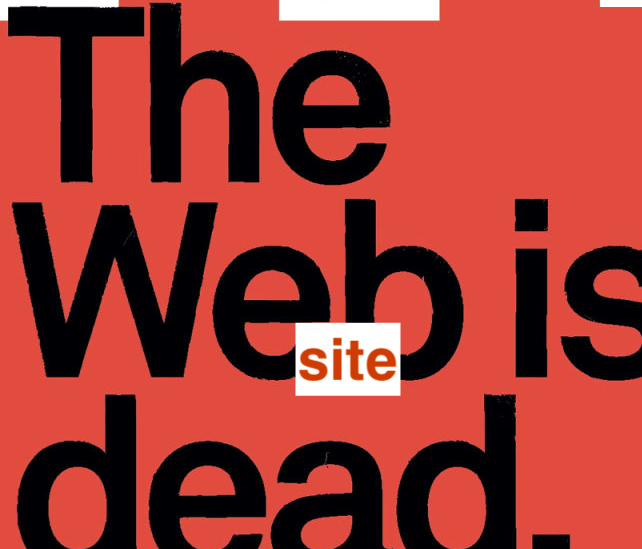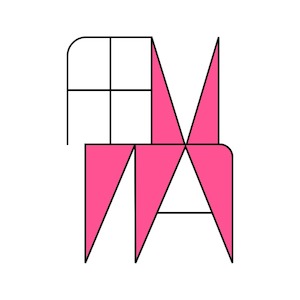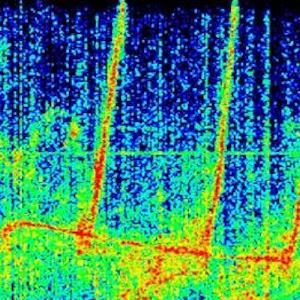Who are you?
⦿ I will remain anonymous for the record. That way I can speak freely. I am a ghost producer, pianist, studio engineer and occasionally DJ for my cats, dogs and close friends. I am 55 years old. I grew up in Leon France. My teenage was largely influenced by 70's funk, afro-jazz, kraut-rock, disco, punk and reggae. The neighbourhood record shops played a major role in shaping my taste in music. The early raves (mid 80s) in Holland, Spain and UK introduced me to acid, proto techno, synthesizers, loudness, noise and drugs. I was playing guitar and singing in a local punk band earlier but destiny took a big turn the day i bought my first synthesizer for a 100 Francs, at a garage sale. A week later I was harbouring utterly naive notions dreaming about being a composer and producer. Two years later, around august '88 I managed to set up an attic-studio in Paris. Since I had formally learned piano and guitar in school, the concept of electronic music and production appeared exciting and fresh to me. Someone lent me a mixing desk and 2-inch tape machine and I was ready to go...
What is a ghost producer?
⦿ In a nutshell a 'ghost' producer is a musician who creates tunes not for himself or herself but for a client - using synthesizers, samplers, sequencers and sometimes real musicians. The process is overseen by a 'bigger' producer who owns a big label or studio. The term 'Ghost Producer' came into being after Shep Pettibone along-with Warner Brothers, Island Records and BMG hired dozens of unknown music producers to create remixes of Madonna, Donna Summers, Pet Shop Boys, Prince, Level 42, Blondie, Depeche Mode, Duran Duran and many pop artists. Many amateur producers including me lined up at the offices of major labels to show off our talent in exchange for fast cash. We were the first generation of ghost producers. By then (1991) Shep Pettibone and Madonna owned yachts and limousines.
What about credits? For the music and sound production?
⦿ A legal contract made sure that ghost producers would not be credited on the released material. The composing or recording credits for the music would be with the label's producer and or the artist. I heard my first remix of Madonna 'Like A Virgin' on the BBC late-night show by chance at a party, months after I had sent the track to the label. I had met a few other ghost producers in Germany and Spain yet no one who was 'ghosting' in France. I had no clue about artist or composer rights at that time. The major labels and their public relations flooded the market with remixes as a reaction to the dance music emerging from the underground scenes in Europe, Caribbean and America.
Are there ghost musicians?
⦿ Sure and many. Circa 2004, I met Bernard Purdie, the legendary drummer, who has performed on hundreds of tunes as a 'ghost drummer'. He had played drums on many tunes by the Beatles. However the credits always went to Ringo Starr and George Martin. In the 80's record companies preferred using ghost producers because of the automation of music and speed of churning out remixes. In the 70s thousands of hit songs contained drummers, guitarists, bassists, horn players, synthesizer players and backing singers who never got credit or mention for their contribution. By early 90s Hip Hop producers and rappers like Dr Dre, Daz and Pete Rock had hired many ghost producers in the east coast. The Akai Sampler revolution was a result of dozens of unknown producers making quick beats and simple tunes for rappers which sounded very fresh and groovy. Almost never heard about them in the magazines, radio or MTV. However there was always work for 'serious' ghost producers who could hack away beats, bass-lines, melodies and effects for the singers, rappers and labels. I moved to the U.S. in 1997 after the hip-hop explosion, the year it outsold country music for the first time in american history.
What happened to your career?
⦿ Well it was a bit of an upside down experience. Stateside is a more aggressive and volatile market. I worked with big names like Pimp C, RZA and The Bomb Squad based on my earlier repertoire with european dance music. I moved between New York, Chicago and Los Angeles for a while looking for better jobs in the industry. Though latin funk and reggaeton had not yet become a household thing in the U.S. I found not-so-famous producers making beats, melodies and demos influenced by latino music originating from Mexico, Brazil, Columbia and Cuba. However there was real money to be made in Hip-Hop. The biggest names like Dr. Dre, Pharell Williams, Paolo Jackson were hiring ghost producers. Almost like an assembly line of beat makers. The sound brief was hilarious at times. One read "I want to hear arabic grooves with gregorian chants and R&B chords". Los Angeles itself was home to countless underground recording studios and self-styled kings of hip-hop. Marijuana was a major part of the diet. The 'ghost job' with LeBron James documentary 'More than a Game' provided me opportunity in Hollywood. Yet that was a glimmer as I gradually realised that ghost producers cannot demand more than what they have been deemed with. My utterly dreamy ideas of becoming a 'world-renowned music producer' had to face a reality check. Hip Hop industry has thousands of ghost producers who never make it to the top of the pile. After being in the U.S. for almost ten years I missed home and wanted a change.
What about your own music?
⦿ Ah! well, I thought about that many times. I even considered getting a manager to look for concerts. Having created dozens of elaborate little demos I visited London and Bristol a few times, at the height of the Drum & Bass explosion (1999). The dub inspired sound of Bristol was a big wave that swept the UK electronic music scene post 2000. Music production had changed a lot very rapidly with the advent of portable computers and faster processors. The industry was shedding tons of hardware in favour of software and virtual devices. I had to stay afloat financially and that meant working 'ghost jobs' for the leading house-music DJs of the day. Mid-2004 I was making up-to three tunes per month for DJs and producers, some of who are now considered the 'Gods of EDM'. At times I didn't even know who the client was. For example the song - 'Acid Jazz' by Herr Kank. Who is Herr Kank? Many times a ghost producer just sells the beats, baselines, synth-parts and whatever else be hacked out of production! Between ghosting and artistic ambitions there's a big distance. I got dissuaded by the process of having to spend a lot of time (and money) to build my career as a 'proper' musician. The ghost producer in me had taken deeper roots than I knew. My wife nailed it by saying "You write the speech and they read it out in front of the public". Never occurred to me that way before. I moved to Berlin in 2009 for a while. Hundreds of ghost producers, DJs (famous or not), software companies, agents and industry professionals were flocking into the city.
Did you ever go back to a piano and guitar situation?
⦿ I have a bunch of guitars and a few amps and an original Rhodes electric piano. I play it once in a blue moon when jamming with friends or just tinkering away at home. I would like to refresh my piano skills at some point. Since my health took a big toll a few years ago as a result of my strenuous lifestyle earlier, I had to turn down many offers. Past 3 years been focussing on ambient and contemporary classical music and my interest of modular synths. It lead to sound-design for documentaries and and animation films.
What is a ghost producer of today like?
⦿ I have been rather slow on the professional side. Yet I can say with certainty that the 'ghost production' business is thriving as ever. Electronic music and sound has become a part of almost every popular genre and there is an even greater demand for skilled musicians and producers. There are some amazing talented kids with just laptop and headphones making some cool music. Look at how Bjork went for Alejandro Ghersi, the 20 year old phenomenon from Caracas Venezuela for producing her brand of music. The 80s and 90s generation did not have the internet or such high processing speeds, however it had the pleasure to play real instruments, synthesizers and work inside studios. Those things are fast vanishing, as I see it here in France. Ghost Producers of today are way more professional than my generation. I was in Mumbai recently attending a wedding and met a ghost producer working in bollywood who had notched more than 1200 commissioned tunes in his decade plus career. I was pretty amazed at the sheer propensity. For dance music, Berlin is still the mecca of ghost producers and DJs. So yeah, ghost producers of today are at it, making summer hits every year.
Advice to future ghost producers?
⦿ That's tricky. One should be careful of free advice. However I would say that learning music, the theory and technique part is important. It was 30 years ago and still is. That little bit (or lot) of education, goes a long way, helping us become a better artist or producer or DJ or 'ghost' at best. If you want to make money and forget about artistic desires, ghost production is a sort of gold-mine : hit or miss you won't get the credit. Big websites hire dozens of producers to churn out royalty free music almost like a shopping mall of tunes. Ghost producers should stop ghosting at some point. The dance music industry contains many ghost producers who write hundreds of hits, beats, sounds and grand production moments .. every year, every summer without getting the rightful place in the picture. Younger ghost-producers know very well that most superstar DJs cannot write credible music. A lot of the 'deep underground electronic music' is created by ghost producers... techno, dubstep, house, drum & bass etc etc. Rihana, Kayne West or XYZ cannot really compose music, design sounds and beats for their own epic hits. Clever kids, producers, out there would hopefully make wise decisions about their music and what they want in life.
⦿ I will remain anonymous for the record. That way I can speak freely. I am a ghost producer, pianist, studio engineer and occasionally DJ for my cats, dogs and close friends. I am 55 years old. I grew up in Leon France. My teenage was largely influenced by 70's funk, afro-jazz, kraut-rock, disco, punk and reggae. The neighbourhood record shops played a major role in shaping my taste in music. The early raves (mid 80s) in Holland, Spain and UK introduced me to acid, proto techno, synthesizers, loudness, noise and drugs. I was playing guitar and singing in a local punk band earlier but destiny took a big turn the day i bought my first synthesizer for a 100 Francs, at a garage sale. A week later I was harbouring utterly naive notions dreaming about being a composer and producer. Two years later, around august '88 I managed to set up an attic-studio in Paris. Since I had formally learned piano and guitar in school, the concept of electronic music and production appeared exciting and fresh to me. Someone lent me a mixing desk and 2-inch tape machine and I was ready to go...
What is a ghost producer?
⦿ In a nutshell a 'ghost' producer is a musician who creates tunes not for himself or herself but for a client - using synthesizers, samplers, sequencers and sometimes real musicians. The process is overseen by a 'bigger' producer who owns a big label or studio. The term 'Ghost Producer' came into being after Shep Pettibone along-with Warner Brothers, Island Records and BMG hired dozens of unknown music producers to create remixes of Madonna, Donna Summers, Pet Shop Boys, Prince, Level 42, Blondie, Depeche Mode, Duran Duran and many pop artists. Many amateur producers including me lined up at the offices of major labels to show off our talent in exchange for fast cash. We were the first generation of ghost producers. By then (1991) Shep Pettibone and Madonna owned yachts and limousines.
What about credits? For the music and sound production?
⦿ A legal contract made sure that ghost producers would not be credited on the released material. The composing or recording credits for the music would be with the label's producer and or the artist. I heard my first remix of Madonna 'Like A Virgin' on the BBC late-night show by chance at a party, months after I had sent the track to the label. I had met a few other ghost producers in Germany and Spain yet no one who was 'ghosting' in France. I had no clue about artist or composer rights at that time. The major labels and their public relations flooded the market with remixes as a reaction to the dance music emerging from the underground scenes in Europe, Caribbean and America.
Are there ghost musicians?
⦿ Sure and many. Circa 2004, I met Bernard Purdie, the legendary drummer, who has performed on hundreds of tunes as a 'ghost drummer'. He had played drums on many tunes by the Beatles. However the credits always went to Ringo Starr and George Martin. In the 80's record companies preferred using ghost producers because of the automation of music and speed of churning out remixes. In the 70s thousands of hit songs contained drummers, guitarists, bassists, horn players, synthesizer players and backing singers who never got credit or mention for their contribution. By early 90s Hip Hop producers and rappers like Dr Dre, Daz and Pete Rock had hired many ghost producers in the east coast. The Akai Sampler revolution was a result of dozens of unknown producers making quick beats and simple tunes for rappers which sounded very fresh and groovy. Almost never heard about them in the magazines, radio or MTV. However there was always work for 'serious' ghost producers who could hack away beats, bass-lines, melodies and effects for the singers, rappers and labels. I moved to the U.S. in 1997 after the hip-hop explosion, the year it outsold country music for the first time in american history.
What happened to your career?
⦿ Well it was a bit of an upside down experience. Stateside is a more aggressive and volatile market. I worked with big names like Pimp C, RZA and The Bomb Squad based on my earlier repertoire with european dance music. I moved between New York, Chicago and Los Angeles for a while looking for better jobs in the industry. Though latin funk and reggaeton had not yet become a household thing in the U.S. I found not-so-famous producers making beats, melodies and demos influenced by latino music originating from Mexico, Brazil, Columbia and Cuba. However there was real money to be made in Hip-Hop. The biggest names like Dr. Dre, Pharell Williams, Paolo Jackson were hiring ghost producers. Almost like an assembly line of beat makers. The sound brief was hilarious at times. One read "I want to hear arabic grooves with gregorian chants and R&B chords". Los Angeles itself was home to countless underground recording studios and self-styled kings of hip-hop. Marijuana was a major part of the diet. The 'ghost job' with LeBron James documentary 'More than a Game' provided me opportunity in Hollywood. Yet that was a glimmer as I gradually realised that ghost producers cannot demand more than what they have been deemed with. My utterly dreamy ideas of becoming a 'world-renowned music producer' had to face a reality check. Hip Hop industry has thousands of ghost producers who never make it to the top of the pile. After being in the U.S. for almost ten years I missed home and wanted a change.
What about your own music?
⦿ Ah! well, I thought about that many times. I even considered getting a manager to look for concerts. Having created dozens of elaborate little demos I visited London and Bristol a few times, at the height of the Drum & Bass explosion (1999). The dub inspired sound of Bristol was a big wave that swept the UK electronic music scene post 2000. Music production had changed a lot very rapidly with the advent of portable computers and faster processors. The industry was shedding tons of hardware in favour of software and virtual devices. I had to stay afloat financially and that meant working 'ghost jobs' for the leading house-music DJs of the day. Mid-2004 I was making up-to three tunes per month for DJs and producers, some of who are now considered the 'Gods of EDM'. At times I didn't even know who the client was. For example the song - 'Acid Jazz' by Herr Kank. Who is Herr Kank? Many times a ghost producer just sells the beats, baselines, synth-parts and whatever else be hacked out of production! Between ghosting and artistic ambitions there's a big distance. I got dissuaded by the process of having to spend a lot of time (and money) to build my career as a 'proper' musician. The ghost producer in me had taken deeper roots than I knew. My wife nailed it by saying "You write the speech and they read it out in front of the public". Never occurred to me that way before. I moved to Berlin in 2009 for a while. Hundreds of ghost producers, DJs (famous or not), software companies, agents and industry professionals were flocking into the city.
Did you ever go back to a piano and guitar situation?
⦿ I have a bunch of guitars and a few amps and an original Rhodes electric piano. I play it once in a blue moon when jamming with friends or just tinkering away at home. I would like to refresh my piano skills at some point. Since my health took a big toll a few years ago as a result of my strenuous lifestyle earlier, I had to turn down many offers. Past 3 years been focussing on ambient and contemporary classical music and my interest of modular synths. It lead to sound-design for documentaries and and animation films.
What is a ghost producer of today like?
⦿ I have been rather slow on the professional side. Yet I can say with certainty that the 'ghost production' business is thriving as ever. Electronic music and sound has become a part of almost every popular genre and there is an even greater demand for skilled musicians and producers. There are some amazing talented kids with just laptop and headphones making some cool music. Look at how Bjork went for Alejandro Ghersi, the 20 year old phenomenon from Caracas Venezuela for producing her brand of music. The 80s and 90s generation did not have the internet or such high processing speeds, however it had the pleasure to play real instruments, synthesizers and work inside studios. Those things are fast vanishing, as I see it here in France. Ghost Producers of today are way more professional than my generation. I was in Mumbai recently attending a wedding and met a ghost producer working in bollywood who had notched more than 1200 commissioned tunes in his decade plus career. I was pretty amazed at the sheer propensity. For dance music, Berlin is still the mecca of ghost producers and DJs. So yeah, ghost producers of today are at it, making summer hits every year.
Advice to future ghost producers?
⦿ That's tricky. One should be careful of free advice. However I would say that learning music, the theory and technique part is important. It was 30 years ago and still is. That little bit (or lot) of education, goes a long way, helping us become a better artist or producer or DJ or 'ghost' at best. If you want to make money and forget about artistic desires, ghost production is a sort of gold-mine : hit or miss you won't get the credit. Big websites hire dozens of producers to churn out royalty free music almost like a shopping mall of tunes. Ghost producers should stop ghosting at some point. The dance music industry contains many ghost producers who write hundreds of hits, beats, sounds and grand production moments .. every year, every summer without getting the rightful place in the picture. Younger ghost-producers know very well that most superstar DJs cannot write credible music. A lot of the 'deep underground electronic music' is created by ghost producers... techno, dubstep, house, drum & bass etc etc. Rihana, Kayne West or XYZ cannot really compose music, design sounds and beats for their own epic hits. Clever kids, producers, out there would hopefully make wise decisions about their music and what they want in life.





























0 -